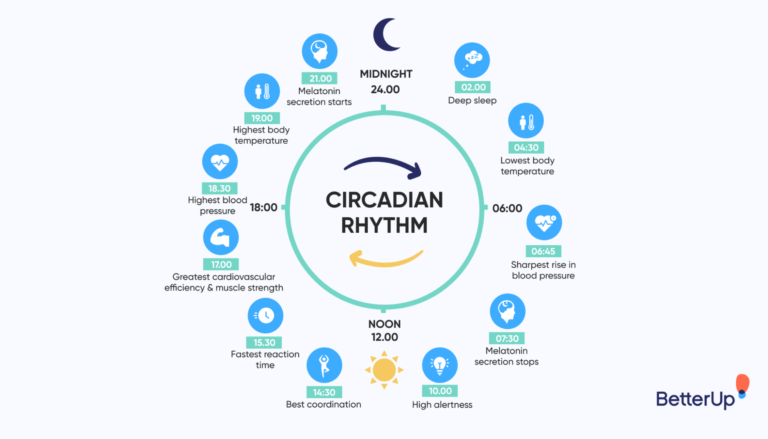Mindfulness in the Workplace: How to Stay Productive and Present

The Importance of Being Present at Work

Being present at work is crucial for individuals to maximize their productivity and overall job satisfaction. When we are fully engaged in the present moment, we are more attentive, focused, and able to perform at our best. This level of presence allows us to make better decisions, respond more effectively to challenges, and foster positive relationships with colleagues.
By cultivating mindfulness and actively practicing it throughout our workday, we can train our minds to stay present. Mindfulness involves paying attention to the present moment, without judgment or attachment to any thoughts, emotions, or distractions that arise. This practice can help us stay grounded and centered, enhancing our ability to stay focused and engaged in our work tasks. In turn, being present enables us to complete our tasks efficiently, meet deadlines, and contribute to the overall success of the organization.
Understanding the Connection Between Mindfulness and Productivity

Mindfulness, the practice of focusing one’s attention on the present moment, has gained increasing recognition for its profound impact on various aspects of life, including productivity in the workplace. Numerous studies have shed light on the connection between mindfulness and productivity, revealing the potential benefits that can be harnessed by cultivating a mindful mindset.
Research has shown that practicing mindfulness can enhance attention and focus, enabling individuals to fully engage in their tasks and perform at their best. By directing their awareness to the present moment, employees are less likely to be distracted by unrelated thoughts or external stimuli, allowing them to concentrate more effectively on their work. Moreover, mindfulness has been found to improve cognitive flexibility, which is vital for problem-solving and decision-making. This ability to approach tasks with a clear and open mind can lead to more innovative thinking and improved efficiency.
Furthermore, mindfulness practices have been shown to reduce stress levels and promote overall well-being, which in turn can have a positive impact on productivity. Chronic stress can adversely affect cognitive functions, such as memory and attention, impairing performance at work. Through techniques such as breath awareness and meditation, mindfulness helps individuals manage stress effectively, leading to improved cognitive function and better ability to navigate challenges in the workplace.
While the link between mindfulness and productivity is becoming more evident, it is important for organizations to recognize and create a supportive environment that encourages mindfulness practices. Strategies such as providing dedicated spaces for meditation or incorporating mindfulness training programs can foster a culture that values and promotes mindfulness in the workplace. By doing so, companies can harness the full potential of mindfulness, enhancing productivity and overall well-being among their employees.
Strategies for Cultivating Mindfulness in the Workplace

Strategies for cultivating mindfulness in the workplace are essential for promoting a positive and productive work environment. One effective approach is to incorporate mindfulness activities into employees’ daily routines. This can be as simple as encouraging individuals to take short breaks throughout the day to focus on their breath or engage in a brief meditation practice. Research has shown that even a few minutes of mindful breathing can reduce stress, improve concentration, and enhance overall well-being.
In addition to individual practices, organizations can also create a mindful workspace to support employees’ mindfulness efforts. This can involve providing designated quiet areas for meditation or relaxation, incorporating natural elements such as plants or water features, and minimizing distractions such as noise or clutter. By setting the stage for mindfulness, employers can foster an environment where employees feel supported in their efforts to cultivate mindfulness and reap the benefits of increased focus and productivity.
Creating a Mindful Workspace for Increased Focus
Creating a mindful workspace is essential for increasing focus and productivity in the workplace. By cultivating an environment that promotes mindfulness, employees can better engage with their tasks and reduce distractions. One key strategy for creating a mindful workspace is to minimize clutter and create an organized and tidy environment. Research has shown that a cluttered workspace can lead to mental overload and a decrease in productivity. By keeping the work area clean and organized, employees can minimize cognitive overload and improve their ability to concentrate on the task at hand.
Another important aspect of creating a mindful workspace is to encourage the use of natural light and positive ambiance. Studies have shown that exposure to natural light can improve mood, reduce stress, and increase alertness. Additionally, incorporating plants and natural elements into the workspace can have a calming effect and increase overall well-being. By creating a workspace with a positive and calming ambiance, employees can feel more relaxed and focused, leading to improved productivity.
The Role of Breath Awareness in Enhancing Productivity
Breath awareness is a fundamental aspect of mindfulness-based practices that can significantly enhance productivity in the workplace. When we bring our attention to the breath, we are grounding ourselves in the present moment, allowing us to be fully engaged in our tasks. This intentional focus on the breath helps to calm the mind, reduce stress levels, and promote a sense of clarity and balance.
By incorporating breath awareness into our daily work routines, we can experience a range of benefits that positively impact our productivity. Deep, conscious breaths help to oxygenate the brain, improving cognitive function and concentration. Furthermore, the rhythmic nature of the breath can act as an anchor to keep our attention steady, preventing distractions and increasing our ability to stay focused on the task at hand. Harnessing the power of our breath allows us to tap into our innate ability to regulate our emotions and maintain a state of calm, even in the face of demanding work situations.
Here’s a short data table on breath awareness in enhancing productivity:
| Breath Awareness in Enhancing Productivity | Key Concepts | Credible Source |
|---|---|---|
| Mindful Breathing Techniques | – Key Concept: Practicing mindful breathing techniques, such as deep breathing or diaphragmatic breathing, can promote relaxation, reduce stress, and enhance focus and productivity. | Harvard Health Publishing – Relaxation techniques: Breath control helps quell errant stress response |
| – Considerations: Incorporating mindful breathing into daily routines can be a valuable tool for managing stress and improving overall mental well-being. | ||
| Energizing Breath Exercises | – Key Concept: Certain breath exercises, like the Kapalbhati breath in yoga, are believed to increase energy levels, clear the mind, and enhance alertness, contributing to improved productivity. | Journal of Clinical Psychology in Medical Settings – Effectiveness of Yoga as an Adjunct to Fluoxetine or Escitalopram in Major Depressive Disorder: A Randomized Controlled Trial |
| – Considerations: Integrating energizing breath exercises into breaks or work intervals may help combat fatigue and boost productivity. | ||
| Focused Breathing for Stress Reduction | – Key Concept: Utilizing focused breathing, like the 4-7-8 technique, can activate the body’s relaxation response, alleviate stress, and create a more conducive mental state for enhanced productivity. | Arizona Center for Integrative Medicine – The Physiology of Breathing |
| – Considerations: Regular practice of focused breathing can be a valuable tool in managing stress and promoting a calm and focused mindset. | ||
| Incorporating Breath Breaks | – Key Concept: Taking short breath breaks throughout the day, even for a few minutes, can serve as a reset, helping to release tension, improve oxygen flow, and support sustained concentration and productivity. | Frontiers in Psychology – Brief mindfulness training for negative affectivity: A systematic evaluation |
| – Considerations: Integrating breath breaks into the work routine fosters a habit of mindful pauses, promoting overall mental well-being. | ||
| Customizing Breath Routines | – Key Concept: Tailoring breath awareness routines to individual preferences and needs allows for a personalized approach, ensuring that the chosen techniques resonate with the individual’s unique work style. | International Journal of Yoga – Effect of fast and slow pranayama on perceived stress and cardiovascular parameters in young health-care students |
| – Considerations: Customizing breath routines encourages sustained engagement and integration into daily activities. |
Practicing Mindful Eating for Improved Mental Clarity
Mindful eating is a practice that involves bringing our full attention to the act of eating. In today’s fast-paced world, many of us eat on the go, multitask while eating, or consume our meals in a rush. However, when we eat mindfully, we are fully present in the moment, paying attention to the flavors, smells, and textures of our food.
Not only does mindful eating allow us to fully enjoy our meals, but it also has numerous benefits for our mental clarity. By slowing down and savoring each bite, we can tune into our body’s hunger and fullness cues, helping us to eat in a way that is more in tune with our body’s needs. Additionally, mindful eating can reduce overeating and emotional eating, as we become more aware of our triggers and patterns around food. Studies have shown that practicing mindful eating can lead to improved focus, concentration, and overall mental well-being.
Harnessing the Power of Meditation for Work Performance
Meditation, a practice that has been around for thousands of years, is increasingly being recognized as a powerful tool for enhancing work performance. The act of meditation involves training the mind to focus on the present moment, often through techniques such as deep breathing or mantra repetition. By taking the time to still the mind and cultivate a sense of calm, individuals can experience a multitude of benefits that can positively impact their work performance.
One of the ways in which meditation can enhance work performance is by improving concentration and focus. In today’s fast-paced and constantly connected world, it’s easy to become distracted and overwhelmed by the numerous tasks and demands vying for our attention. However, research has shown that regular meditation practice can help to strengthen the neural pathways associated with sustained attention, making it easier to stay focused on the task at hand. Additionally, meditation can help to reduce the frequency and intensity of intrusive thoughts, allowing individuals to maintain a greater level of concentration and productivity throughout the day.
Integrating Mindfulness into Daily Work Routines
Incorporating mindfulness into daily work routines can have a positive impact on overall productivity and well-being. By practicing mindfulness, individuals can cultivate a heightened sense of awareness and focus, allowing them to be fully present in each task they undertake. This can help to reduce distractions and improve concentration, ultimately leading to greater efficiency in completing work tasks.
One way to integrate mindfulness into daily work routines is by starting the day with a brief mindfulness meditation practice. This can involve finding a quiet space, closing your eyes, and focusing on your breath for a few minutes. By centering yourself before diving into the day’s tasks, you can establish a sense of calm and clarity that sets the tone for a more mindful workday. Additionally, taking short breaks throughout the day to engage in mindful activities such as stretching, deep breathing, or even taking a short walk can help to recharge and refocus the mind, leading to increased productivity in the long run.
Incorporating mindfulness into daily work routines can have numerous benefits for both individuals and organizations. By cultivating a mindful approach to work, individuals can enhance their ability to stay present and engaged in their tasks, leading to increased efficiency and productivity. Furthermore, practicing mindfulness can also help to reduce stress and improve well-being, contributing to a more positive work environment overall. By implementing these strategies, organizations can create a workplace culture that values mindfulness and embraces the power of being fully present in the daily work routine.
Enhancing Communication and Collaboration through Mindfulness
One of the areas where mindfulness can greatly benefit the workplace is in enhancing communication and collaboration among teams. Mindfulness practices can help individuals become more present and attentive, allowing them to actively listen and engage in meaningful conversations. When we are fully present in our interactions, we can better understand the perspectives and needs of others, fostering empathy and creating an atmosphere of trust and respect.
Additionally, mindfulness can also improve our ability to communicate effectively by reducing reactive and impulsive responses. By cultivating an awareness of our thoughts, emotions, and bodily sensations, we can gain better control over our reactions and choose more thoughtful and considerate responses. This not only helps in avoiding misunderstandings or conflicts, but also allows for more open and constructive discussions, enabling teams to work together more harmoniously towards shared goals.
Managing Stress and Avoiding Burnout with Mindfulness Techniques
Stress and burnout have become increasingly prevalent in today’s fast-paced and demanding work environments. The constant pressure to meet deadlines and exceed expectations can take a toll on our mental and physical well-being. Fortunately, mindfulness techniques offer powerful tools to manage stress and avoid burnout.
Mindfulness involves paying attention to the present moment nonjudgmentally, cultivating a state of heightened awareness and focus. By practicing mindfulness, individuals can develop a greater sense of self-awareness and gain control over their responses to stressors. Research has shown that mindfulness techniques, such as meditation and breath awareness, can effectively reduce stress and burnout in the workplace.
One study published in the Journal of Occupational Health Psychology found that employees who participated in a mindfulness program reported lower levels of perceived stress and higher levels of job satisfaction compared to those who did not engage in mindfulness practices. Another study published in the Journal of Clinical Psychology showed that mindfulness-based stress reduction programs significantly reduced burnout symptoms in healthcare professionals.
Implementing mindfulness techniques in the workplace can be as simple as incorporating short meditation breaks throughout the day or encouraging employees to engage in mindful breathing exercises during stressful situations. By creating a culture of mindfulness, organizations can foster an environment that supports well-being, productivity, and overall job satisfaction. However, it is important to note that mindfulness is not a quick fix solution and requires regular practice to yield long-term benefits.
The Impact of Mindful Decision-Making on Work Efficiency
Mindful decision-making is a crucial factor that can significantly impact work efficiency. When individuals approach decision-making with a mindful mindset, they are able to fully focus on the present moment and make choices based on a clear understanding of the task at hand. By incorporating mindfulness into the decision-making process, individuals are more likely to be aware of their thoughts, emotions, and biases, allowing them to make more informed and rational decisions.
Research has shown that practicing mindfulness techniques can enhance cognitive abilities such as attention, working memory, and problem-solving skills. This, in turn, can have a direct positive impact on work efficiency. A study published in the Journal of Applied Psychology found that individuals who engaged in mindful decision-making exhibited better cognitive performance, higher levels of creativity, and improved problem-solving abilities. By cultivating a mindful approach to decision-making, individuals can harness their innate abilities and tap into their full potential, resulting in increased work efficiency.
Furthermore, making mindful decisions can also reduce the occurrence of impulsive and hasty choices, which often lead to errors and inefficiencies. By taking the time to pause, reflect, and consider the various factors involved in a decision, individuals can avoid making snap judgments that may have negative consequences. A study conducted at the University of Utah showed that mindfulness training led to a decrease in impulsive decision-making and an increase in self-control and deliberation. This highlights the importance of incorporating mindfulness into the decision-making process as a means to improve work efficiency and minimize errors.
In conclusion, the impact of mindful decision-making on work efficiency cannot be overstated. By cultivating a mindful approach to decision-making, individuals can enhance their cognitive abilities, improve problem-solving skills, and avoid impulsive choices. Taking the time to be fully present and aware in the decision-making process allows individuals to tap into their inherent capabilities, resulting in increased work efficiency and improved outcomes.
Cultivating Emotional Intelligence through Mindfulness Practices
When it comes to cultivating emotional intelligence in the workplace, mindfulness practices can play a crucial role. Mindfulness promotes self-awareness, empathy, and emotional regulation, which are all essential components of emotional intelligence. By practicing mindfulness, individuals can develop a deeper understanding of their own emotions and reactions, as well as those of others, leading to improved interpersonal relationships and better communication.
One of the core principles of mindfulness is non-judgmental awareness, which encourages individuals to observe their thoughts and emotions without labeling them as good or bad. This non-reactive approach helps individuals become more attuned to their own emotional states and enables them to respond to challenging situations with greater clarity and composure. By regularly practicing mindfulness, employees can develop the ability to pause and reflect before reacting, allowing them to choose more constructive responses and prevent unnecessary conflicts or misunderstandings.
Furthermore, mindfulness practices can enhance emotional intelligence by promoting self-compassion. Being kind and gentle with oneself in the face of difficulties or failures is an important aspect of emotional intelligence. Mindfulness cultivates self-compassion by teaching individuals to treat themselves with understanding and acceptance, just as they would treat a friend. This self-compassion not only enhances emotional well-being but also enables individuals to extend compassion and understanding to their colleagues, fostering a more supportive and positive work environment.
Overall, integrating mindfulness practices into the workplace can offer significant benefits in developing emotional intelligence. By cultivating self-awareness, empathy, and emotional regulation, individuals can enhance their interpersonal skills and overall well-being. As a result, cultivating emotional intelligence through mindfulness can contribute to a more harmonious and productive work environment.
Incorporating Mindfulness in Team Building and Leadership Development
Team building and leadership development are crucial components of a successful workplace. Incorporating mindfulness practices into these areas can greatly enhance the overall effectiveness and productivity of teams and leaders. Mindfulness, at its core, is about being fully present and aware in the present moment, without judgment.
When applied to team building, mindfulness can foster a greater sense of connection, collaboration, and trust among team members. By encouraging individuals to be fully present and engaged during team activities and discussions, mindfulness can help team members to truly listen to one another, understand different perspectives, and work together more harmoniously. Additionally, mindfulness techniques such as guided meditation or breathing exercises can be incorporated into team building exercises to help participants relax and focus, leading to improved creativity and problem-solving skills.
Incorporating mindfulness into leadership development can also have significant benefits. Mindful leaders are better equipped to handle stress, make decisions with greater clarity, and effectively manage their teams. By practicing mindfulness, leaders develop greater self-awareness, allowing them to understand their own strengths and weaknesses and make conscious efforts to improve. Furthermore, mindful leaders are more attuned to the needs and emotions of their team members, leading to more empathetic and supportive leadership practices.
Incorporating mindfulness practices into team building and leadership development can have a transformative impact on the overall functioning and success of a workplace. By promoting presence, awareness, and self-reflection, mindfulness cultivates an environment of collaboration, personal growth, and emotional intelligence. The result is a more engaged, productive, and harmonious team, with leaders who are equipped to guide their teams with compassion and effectiveness.
Sustaining Mindfulness in the Workplace for Long-Term Benefits
In order to sustain mindfulness in the workplace for long-term benefits, it is important to establish a culture that supports and encourages mindfulness practices. This can begin with providing employees with the necessary tools and resources to engage in mindfulness, such as meditation apps, designated spaces for quiet reflection, and access to mindfulness training programs. Additionally, leaders and managers play a crucial role in modeling and promoting mindfulness behaviors themselves.
It is also vital to consistently reinforce the importance of mindfulness in the workplace through ongoing communication and education. This can be done through regular reminders and updates about mindfulness initiatives, as well as workshops and training sessions that provide employees with the knowledge and skills to incorporate mindfulness into their daily work routines. By creating a supportive and engaging environment, organizations can help employees sustain their mindfulness practices, leading to long-term benefits such as improved focus, reduced stress, and enhanced overall well-being.
What is mindfulness in the workplace?
Mindfulness in the workplace refers to the practice of being fully present and engaged in the current moment, without judgment, while performing work-related tasks.
How does mindfulness relate to productivity at work?
Mindfulness has been shown to improve productivity at work by enhancing focus, reducing distractions, and promoting mental clarity. It allows individuals to fully immerse themselves in their work, resulting in increased efficiency and effectiveness.
What are some strategies for cultivating mindfulness in the workplace?
Strategies for cultivating mindfulness in the workplace include creating a mindful workspace, practicing breath awareness, incorporating mindful eating, and harnessing the power of meditation. These techniques help individuals develop a sense of presence and awareness in their work environment.
How can breath awareness enhance productivity?
Breath awareness involves focusing on one’s breath as a way to anchor attention and cultivate mindfulness. By paying attention to the breath, individuals can calm the mind, reduce stress, and improve concentration, ultimately enhancing productivity.
What is mindful eating and how does it contribute to mental clarity?
Mindful eating involves paying full attention to the experience of eating, including the taste, texture, and sensations of food. By practicing mindful eating, individuals can slow down, savor their meals, and reduce mindless snacking, leading to improved mental clarity and focus.
How can meditation impact work performance?
Meditation has been found to improve work performance by reducing stress, enhancing focus, and increasing self-awareness. Regular meditation practice can help individuals cultivate a calm and focused state of mind, leading to improved productivity and decision-making skills.
How can mindfulness be integrated into daily work routines?
Mindfulness can be integrated into daily work routines by incorporating short mindfulness exercises throughout the day, such as taking mindful breaks, practicing gratitude, or setting intentions before starting tasks. These practices help individuals stay present and centered amidst their work responsibilities.
How does mindfulness enhance communication and collaboration in the workplace?
Mindfulness enhances communication and collaboration in the workplace by promoting active listening, empathy, and non-judgment. When individuals are mindful and fully present during interactions, they can better understand and respond to the needs and perspectives of others, fostering stronger relationships and teamwork.
How can mindfulness techniques help manage stress and prevent burnout?
Mindfulness techniques, such as breath awareness, meditation, and stress reduction exercises, can help manage stress and prevent burnout by promoting relaxation, reducing anxiety, and improving resilience. By regularly practicing mindfulness, individuals can better cope with work-related pressures and maintain overall well-being.
How does mindful decision-making impact work efficiency?
Mindful decision-making involves making choices with full awareness and consideration of the present moment. By practicing mindfulness in decision-making, individuals can reduce impulsive reactions, enhance critical thinking, and make more informed and efficient choices.
How does mindfulness cultivate emotional intelligence in the workplace?
Mindfulness cultivates emotional intelligence by increasing self-awareness and empathy. It helps individuals recognize and regulate their own emotions, as well as understand and respond to the emotions of others. This enhanced emotional intelligence contributes to better relationships and effective leadership in the workplace.
How can mindfulness be incorporated in team building and leadership development?
Mindfulness can be incorporated in team building and leadership development through activities such as mindfulness exercises, group meditation sessions, and mindful communication practices. These activities help foster a sense of connection, trust, and emotional intelligence among team members, leading to improved collaboration and leadership skills.
How can mindfulness be sustained in the workplace for long-term benefits?
Mindfulness can be sustained in the workplace for long-term benefits by creating a culture that supports and encourages mindfulness practices, providing mindfulness training and resources, and integrating mindfulness into organizational policies and routines. Continuous reinforcement and support are key to maintaining a mindful work environment.






